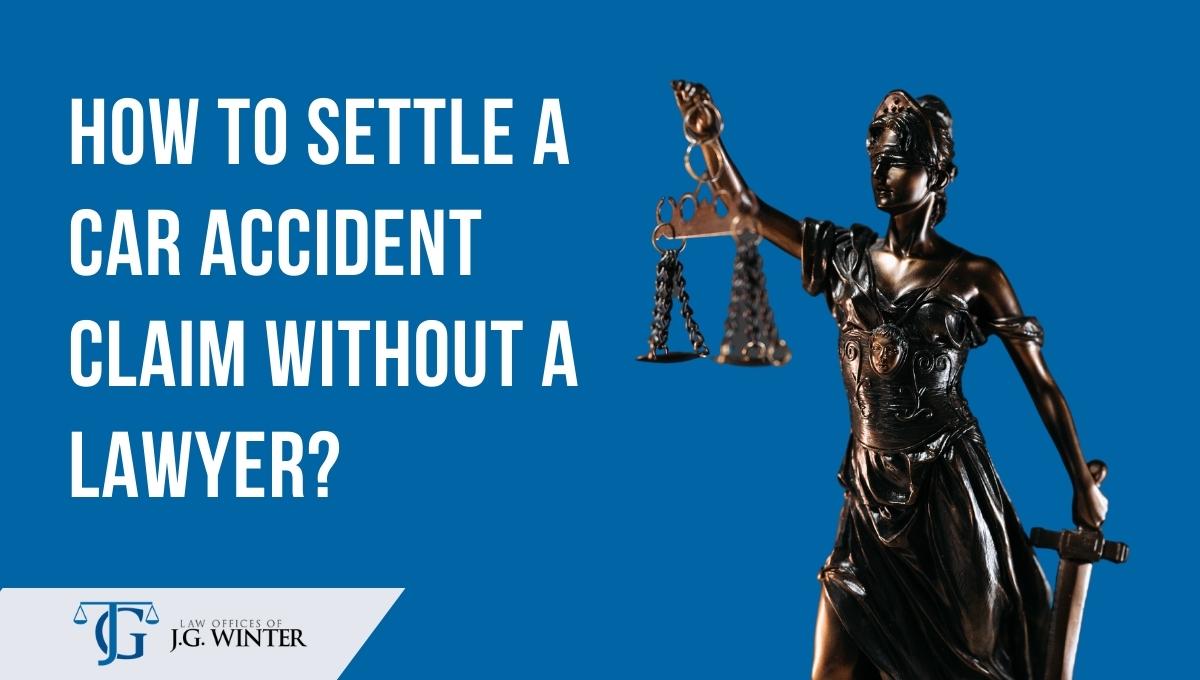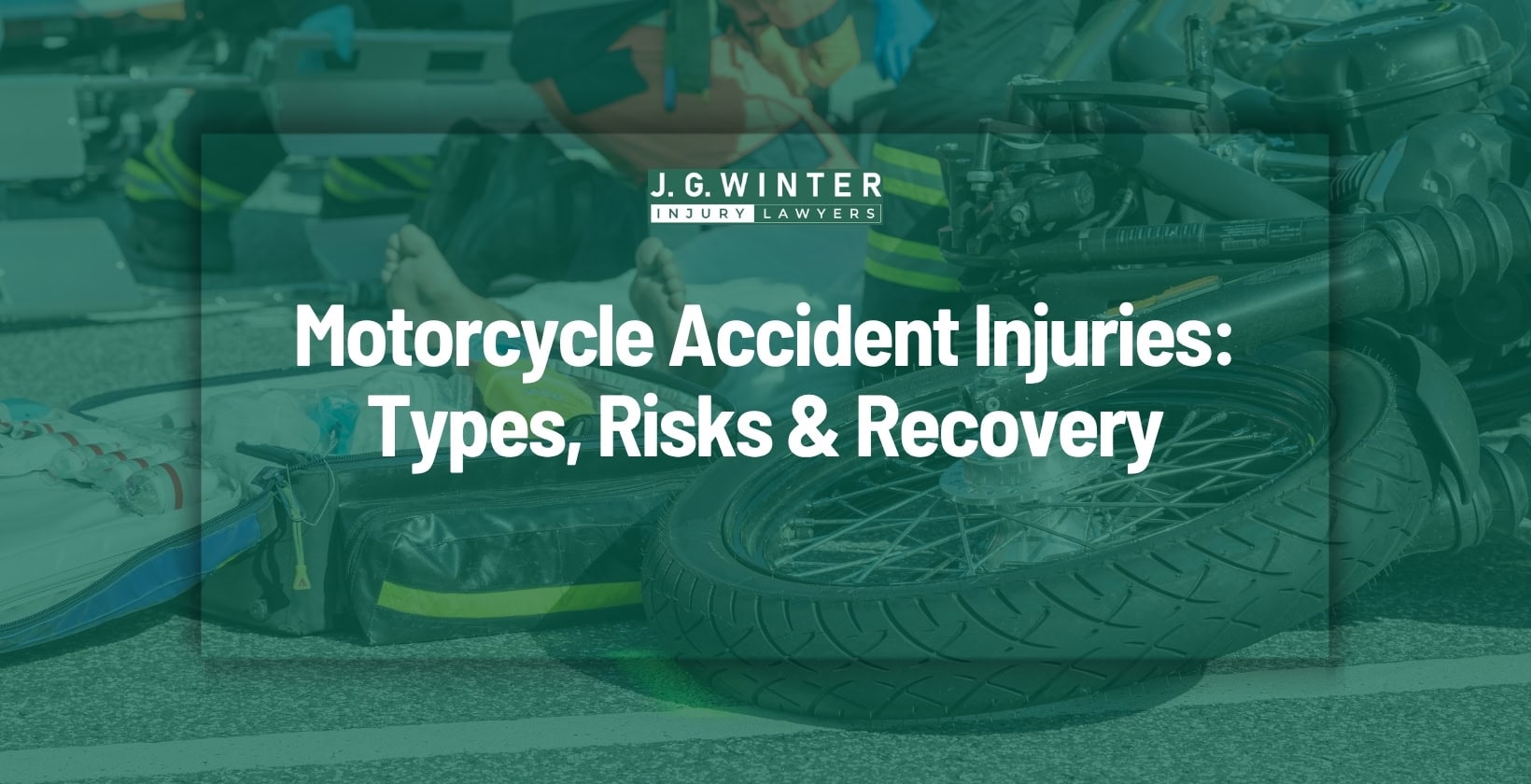It only takes one mistake to change your life in an instant. Unfortunately, car accidents are common, affecting approximately 3 million individuals who sustain injuries each year. Many of us tend to dismiss this fact, assuming that we will never find ourselves in such a situation.
However, the truth is that severe injuries can befall anyone in the blink of an eye, necessitating immediate medical attention. The burden of coping with exorbitant medical expenses can be incredibly overwhelming. Your journey to recovery may prove to be a challenging one, taking anywhere from a few weeks to several months. Read on, to learn how to settle a car accident claim without a lawyer and to bolster your case with compelling evidence.
After you heal completely, you can obtain compensation from the at-fault party. However, it’s not as simple as you might think. Managing everything on your own can be challenging. An experienced lawyer can assist you in smoothly navigating the complex legal process, enabling you to concentrate on your recovery.
Deciding Whether to Move Forward With or Without a Car Accident Lawyer
Whether you decide to hire a car accident lawyer or handle the situation alone will significantly impact the outcome of your case. If you decide to handle the situation independently, follow these guides to maximize the value of your case without hiring an attorney:
Severity of Injury & Property Damage
Before you begin, you need to have a clear idea of the damages that you suffered. This goes beyond the physical harm inflicted on your vehicle or any injuries you suffered. If you were involved in a fender bender, you can independently handle your case, but you should consult with a lawyer if it’s a serious injury.
Injuries can range from minor to life-threatening, and it takes weeks or months to heal them. And sometimes, it can cause irreparable damage. Some of the common injuries are:
- Bruises
- Scars and disfiguration
- Concussion
- Spinal cord injury and paralysis
- Back injuries
- Fractures or broken bones
- Internal injuries
- Amputation
- Brain injuries
To evaluate the total worth of your case, put the following things under consideration:
- Physical and emotional distress
- Rehabilitation costs
- Current and future medical expenses
- Lost wages
Accumulate Evidence
To maximize the compensation, you must gather solid evidence to build your case. It is necessary that you collect evidence to determine the chances of winning the case. These include:
- Time, place, and location of the accident
- Photos of your injury and vehicle damage
- Exchange contact information of other party/witness
- Police report
- Photograph if anyone else is injured
- Other driver’s insurance information
- Medical reports
- Damage to your vehicle
- Damage caused by another vehicle
- Surveillance video
Identify the Liable parties
Make sure you’re claiming against the right people or entities after a car accident. Otherwise, you might risk facing a counterclaim. If it’s clear that the other driver is at fault, and their insurance company acknowledges the responsibility, then you can go forward with your claim without a lawyer.
Statue of Limitation
After your car accident, you have a limited time period to file a lawsuit against an at-fault party. Usually, it’s between two to four years. Don’t delay to reach a settlement agreement for too long, as it could lead to your claim becoming time-barred.
Demand Letter
A demand letter is a document you send to an at-fault driver’s insurance company. You must write details of the incident and establish the other driver’s negligence. It is best to have an experienced car accident lawyer write it on your behalf. To maximize its effectiveness, your demand letter should include:
- Details of your collision
- Time, date, and location of the collision
- Description of damage to your vehicle
- Names and contact details of other parties involved
- Breakdown incurred expenses due to accident
- The exact amount of compensation you want
- Estimates of repairs
- Future medical expenses you may require
- Information on your recovery
- Deadline to respond
Sum up the letter with a clearly stated specific amount, higher than what you are willing to settle for, to negotiate with an insurance company.
Review the Settlement Offer
After sending a demand letter, we begin negotiations for settlement. The insurance company may agree to your requested amount for the claim, but they frequently seek to deny or lower it. You can assess their offer, and if it seems unfair, consider countering it. You must write your counteroffer and send it to the right person, an insurance adjuster or an attorney. You must include your reasons for rejecting their initial offer. Also, include your willingness to compromise and your desired settlement amount to resolve the case.
You must take it to court if you still cannot settle your case. Court proceedings can be complex and challenging, so taking the help of a lawyer to guide you through would be beneficial.
Decide If It Is Worth Going To Court
Settling your case alone can be challenging. The results may not always be as expected since you are dealing with expert negotiators. They will try to reduce your deserved settlement amount. If a large settlement is at stake, and the insurance company doesn’t cooperate during negotiations, you should take your case to court.
When you have a lawyer by your side, you increase the chances of receiving a fair settlement. You can miss out on important evidence when you are inexperienced. Dealing with court proceedings while already coping with physical and psychological trauma is stressful. Your lawyer will help you collect evidence, file and fight for your case in court, and inform you about accident laws you need to know. They will take all the burden off your shoulders and let you recover without added stress.
Final Words
If you are involved in a car accident, you may initially think about minimizing expenses. Such thoughts can leave you unsure about hiring a lawyer. We provide service on a contingency fee basis. Let our team handle the case independently rather than learning how to handle it. Contact us for a free consultation today.
FAQ
Can I be compensated for my pain and suffering?
Yes, you can get compensated for your pain and suffering. There are no precise and fixed criteria for calculating pain and suffering damages. Courts generally assess the evidence in a personal injury case to establish fair and equitable compensation based on your situation.
How do I increase my settlement value?
You need to provide the most compelling evidence for your claim to increase the potential value of your settlement, which includes:
- Seeking prompt medical treatment
- Preserving all evidence from the accident scene.
- Include past, current, and future damages.
- Evaluating the complete worth of your claim from every perspective.
How do you counter-offer car accident settlement?
You can counter the offered car accident settlement by declining it and proposing a settlement figure. Moreover, you must present evidence to support your claim, which is crucial.
Can you sue after the statute of limitations has expired?
You cannot file a claim if your statute of limitation has expired. However, in certain circumstances, it can get an extension.
What percentage do car accident lawyers charge?
Many car accident lawyers opt to operate under a contingency fee, which means they only get paid if you win your case. American Bars Association states that contingency-based law firms typically charge one-third of the final settlement, i.e., 33% to 40%.
How long should the demand letter be?
There must be a correlation between the size of your claim and the length of your demand letter. Claims worth millions of dollars require a more comprehensive demand letter. Determining how an insurance company will respond is essential in finding the optimal balance.




